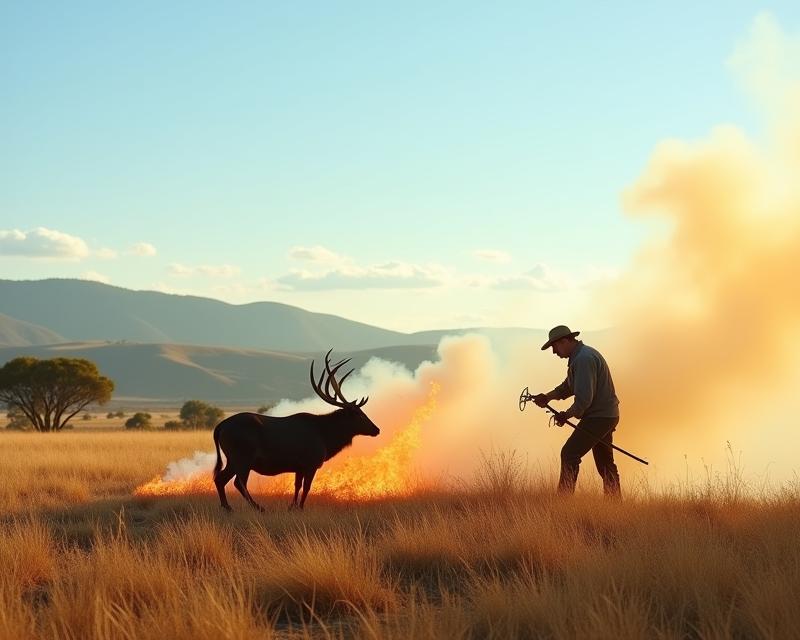Fire-stick Farming: An Ancient Wisdom for Modern Farmers
Publish in Sustainable Farming el 05/07/2025 20:53
Ancestral Fire-stick Farming in Australia
For millennia, Aboriginal Australians have practiced a sophisticated land management technique known as fire-stick farming (also called controlled burning). It's far more than just setting fires; it's a deeply ingrained cultural practice that has shaped the Australian landscape and supported biodiversity for tens of thousands of years. Understanding this ancient wisdom offers valuable insights for modern farmers and gardeners looking to improve soil health, manage ecosystems, and promote resilience in the face of climate change.

What is Fire-stick Farming?
Fire-stick farming involves intentionally setting low-intensity fires across the landscape during specific seasons. These fires are carefully planned and executed to achieve specific ecological outcomes. Unlike wildfires, which are uncontrolled and destructive, fire-stick burns are meticulously managed. The fires are typically ignited using a 'fire-stick' – a length of softwood tied to a cord – and carefully guided across the ground. The goal isn't to consume everything, but to selectively clear undergrowth, stimulate new growth, and promote the regeneration of native plants.
Benefits for Modern Agriculture
So, how can this ancient practice benefit you? Here are some key advantages:
- Improved Soil Health: The heat from the fire releases nutrients locked up in organic matter, making them more accessible to plants. It also improves soil structure, increasing water infiltration and reducing erosion.
- Biodiversity Boost: Fire-stick burns create a mosaic of habitats, supporting a wider range of plant and animal species. This can be particularly beneficial for pollinators and beneficial insects.
- Weed Control: Controlled burns can effectively suppress invasive weeds, reducing the need for herbicides.
- Fuel Reduction: Reducing the amount of flammable vegetation lowers the risk of large, uncontrolled wildfires, protecting your property and surrounding areas.
- Carbon Sequestration: While seemingly counterintuitive, controlled burns can actually enhance carbon sequestration in the soil over the long term.
Getting Started (and Important Considerations)
While fire-stick farming is a powerful tool, it's crucial to approach it with respect and caution. It requires careful planning, training, and adherence to local regulations. Never attempt to conduct a burn without proper training and permits. Consult with your local fire authorities and land management agencies. Consider starting small, with a limited area, and gradually increasing the scale as you gain experience. Understanding fire behavior, weather conditions, and the specific ecology of your land is paramount. There are many resources available, including workshops and online courses, to help you learn more. Remember, this is about working *with* the land, not against it.
Resources
Many organizations offer resources on fire-stick farming. Search online for your local land management agency or native title organization for more information.





